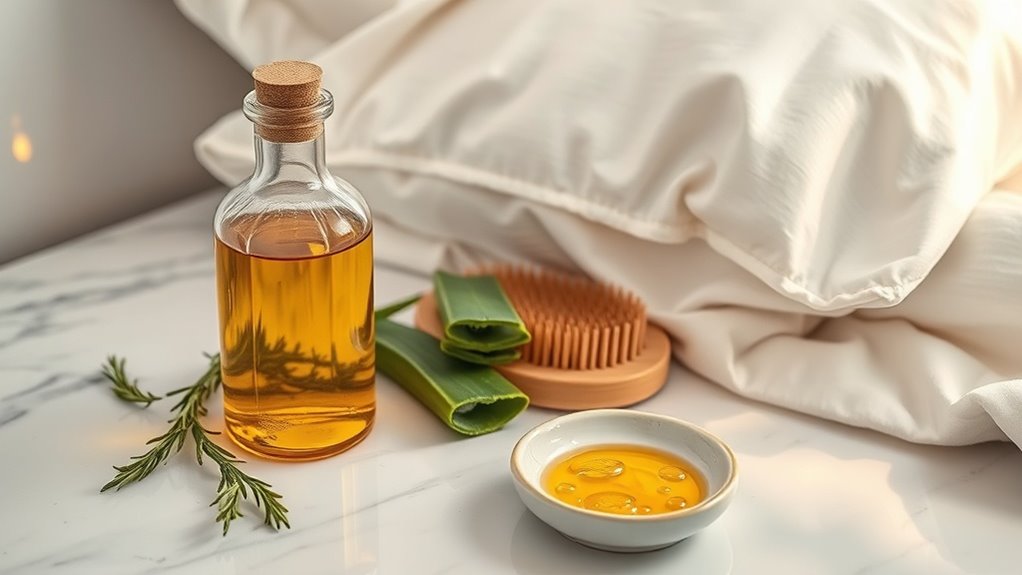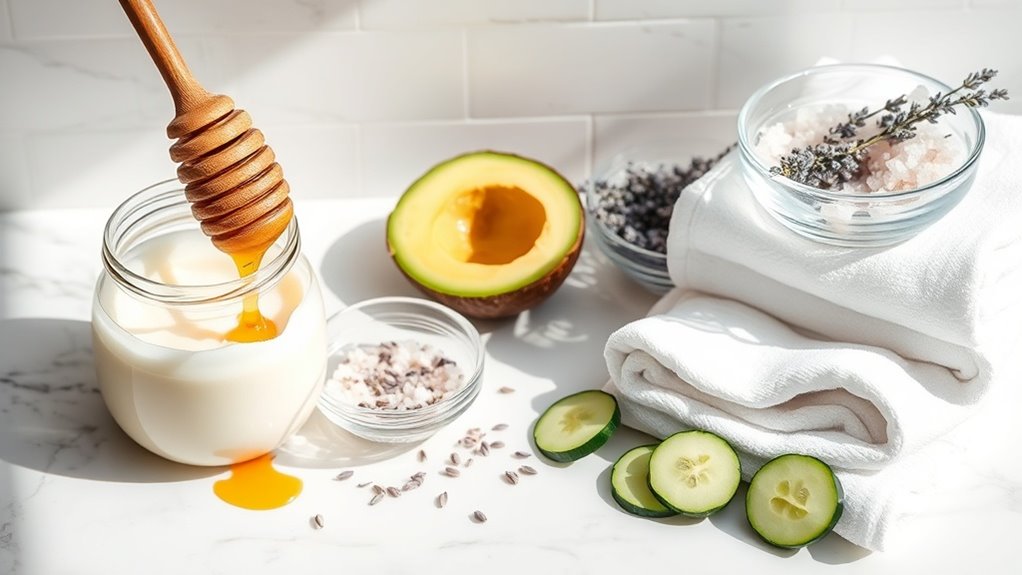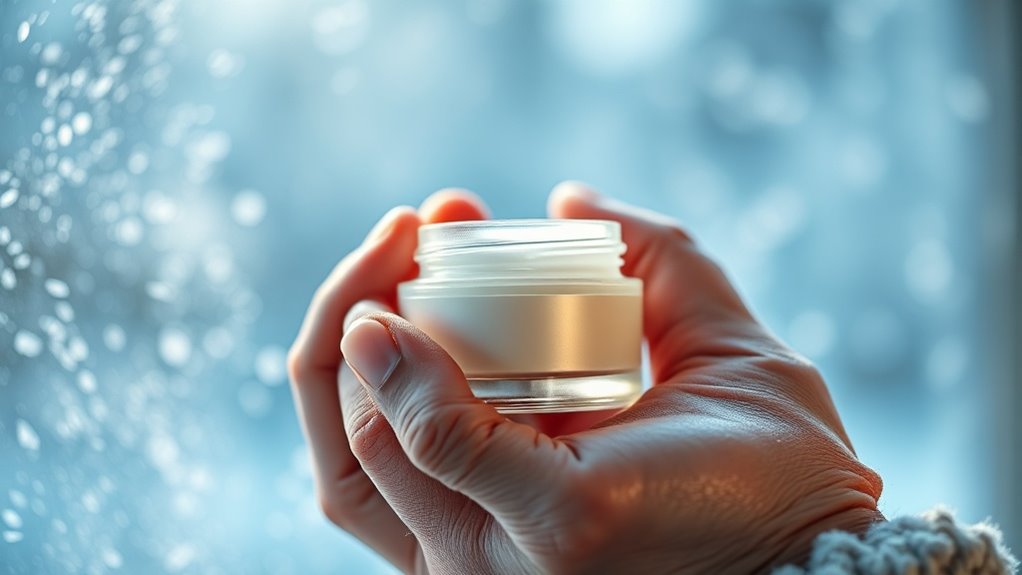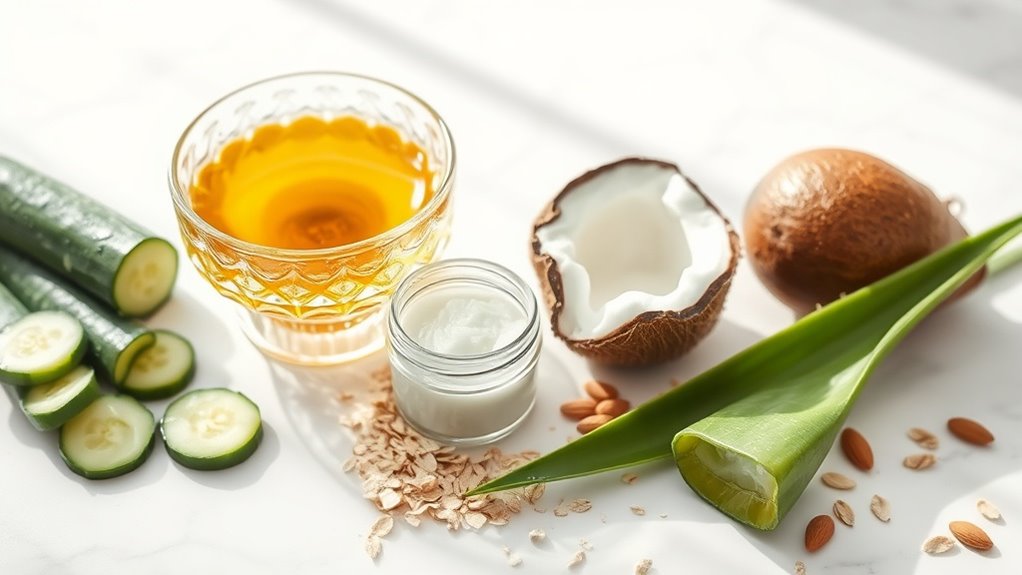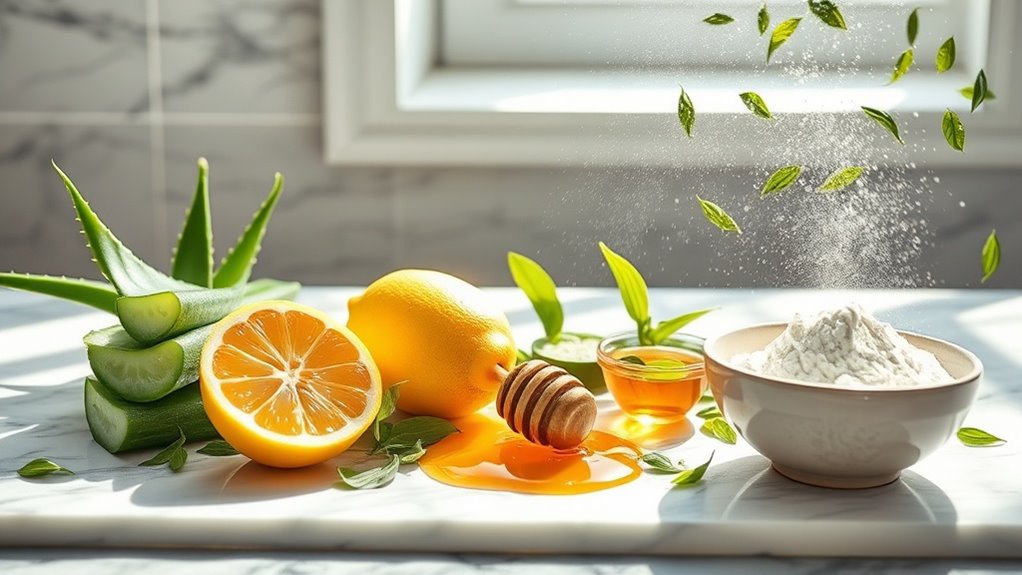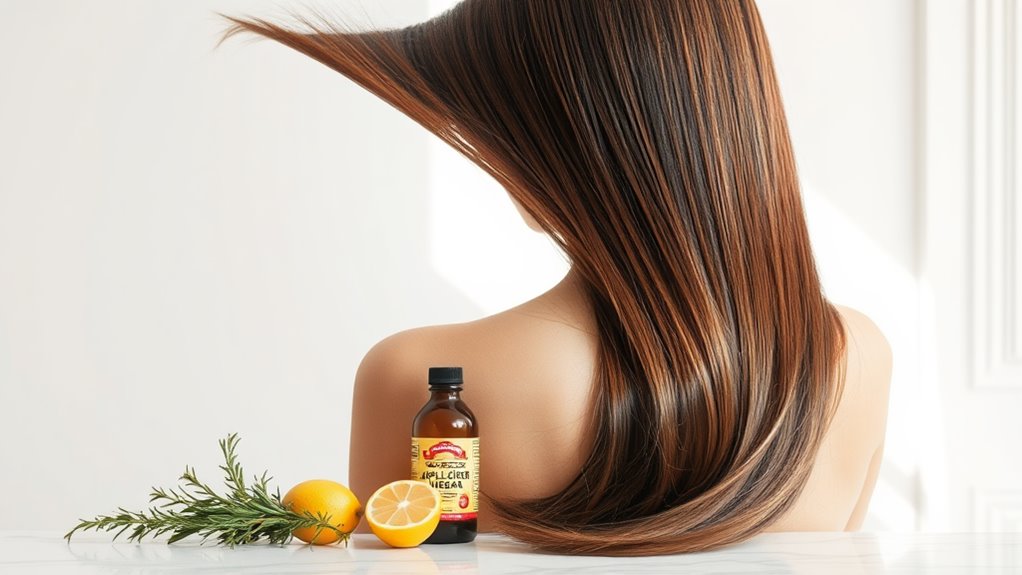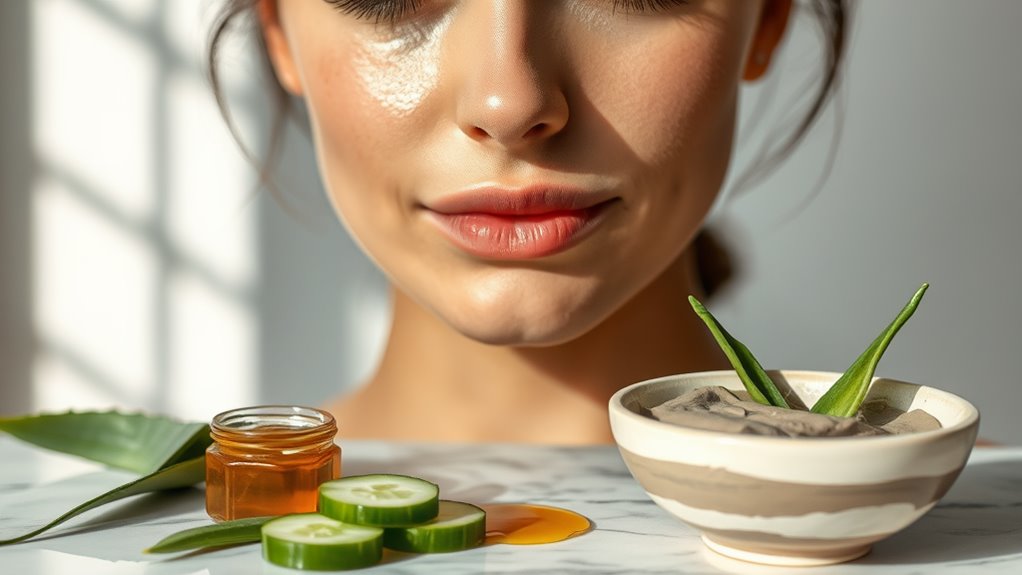Greasy Hair Remedies That Work Overnight
You can combat greasy hair overnight by targeting excess sebum production through proven methods. Apply a mixture of apple cider vinegar and water (1:3 ratio) to your scalp, or use clay-based treatments with tea tree oil to absorb oil without over-drying. Sleep with your hair in a loose, high bun on a silk pillowcase to minimize oil transfer. For maximum effectiveness, combine these treatments with proper scalp care techniques and specialized ingredients.
Understanding the Root Causes of Greasy Hair
While many people struggle with greasy hair, the condition primarily stems from overactive sebaceous glands producing excess sebum – an oily substance that naturally moisturizes and protects the scalp and hair shaft.
Your genetics, hormonal fluctuations, and environmental factors can trigger increased sebum production.
Before exploring greasy hair remedies, you’ll need to identify specific triggers like overwashing, product buildup, or hormonal imbalances.
Common catalysts include touching your hair frequently, using heavy conditioning products, and exposure to humidity. Correct application of dry shampoo at night can also be a helpful strategy to reduce morning greasiness.
Understanding these root causes helps you select the most effective treatment approach for your specific situation.
Essential Ingredients for Overnight Oil Control
Several powerful ingredients can effectively combat overnight oil production while you sleep.
Tea tree oil’s antimicrobial properties help regulate sebum production, while salicylic acid removes excess oil and dead skin cells from your scalp.
Witch hazel acts as an astringent to tighten pores and reduce oiliness.
Clay-based ingredients like kaolin and bentonite absorb excess sebum without drying out your scalp.
Apple cider vinegar helps balance your scalp’s pH levels and removes product buildup.
For protein-based control, egg whites contain albumin that tightens pores, while zinc pyrithione targets oil-producing bacteria on your scalp. Additionally, incorporating coconut oil’s antimicrobial properties in your routine can help maintain a healthy scalp and reduce oiliness.
DIY Natural Treatments You Can Apply Before Bed
Because natural ingredients offer effective solutions for oily hair management, you’ll find numerous DIY treatments that can work overnight.
Apply a mixture of apple cider vinegar and water (1:3 ratio) to your scalp, focusing on oil-prone areas.
Green tea masks containing caffeine and antioxidants help regulate sebum production when combined with white clay.
For intense treatment, mix one egg white with two tablespoons of lemon juice, apply to roots, and rinse thoroughly in the morning.
Alternatively, create a paste using baking soda and water to absorb excess oils.
These treatments work best when applied to dry hair before bedtime. Incorporating natural ingredients like tea tree oil into your routine can further enhance oil control.
Best Overnight Hair Care Techniques
Proper overnight hair care techniques can significantly reduce excess oil production while protecting your hair’s natural moisture balance.
By implementing specific methods before bed, you’ll optimize sebum regulation and maintain healthier strands.
-
Use a silk or satin pillowcase to minimize friction and oil transfer from cotton fabrics.
-
Keep hair elevated above the pillow using a loose, high bun secured with a silk scrunchie.
-
Apply dry shampoo preventatively to roots, allowing it to absorb oil throughout the night.
-
Brush hair with a natural bristle brush to distribute oils from roots to ends, preventing overproduction.
Morning After Care and Maintenance Tips
Following your overnight hair care routine, morning maintenance plays a key role in managing greasy hair throughout the day.
Begin by rinsing your hair with cool water to seal the cuticles and remove any excess oil-absorbing products.
Use a clarifying shampoo only at the roots, focusing on areas that produce the most sebum.
Don’t skip conditioner, but apply it from mid-shaft to ends only.
Style your hair while it’s still damp using lightweight products that won’t add additional oil.
Consider using a dry shampoo preemptively on clean hair to extend the time between washes. Additionally, incorporating coconut oil’s properties can help strengthen hair and manage greasy textures efficiently.
Professional Solutions for Persistent Oily Scalp
When over-the-counter treatments fail to control persistent oily scalp conditions, professional dermatological interventions can provide targeted solutions.
These medically-supervised treatments address the root causes of excessive sebum production.
- Prescription-strength salicylic acid treatments (2-5%) to regulate oil production and minimize pore blockage
- Oral medications like isotretinoin to reduce sebaceous gland activity
- LED light therapy sessions to kill bacteria and balance oil production
- Professional-grade scalp microbiome treatments to restore healthy flora balance
Consider consulting a dermatologist if you’re experiencing severe scalp oiliness that persists despite using conventional remedies.
They’ll develop a customized treatment plan based on your specific condition.

